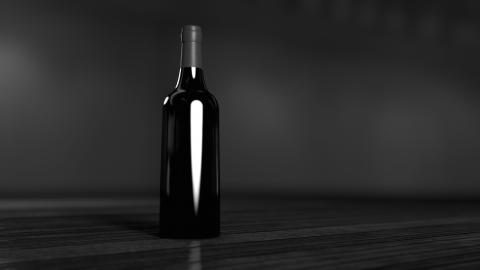
In 1987, the Partnership for a Drug Free America, produced a public service announcement (PSA) comparing the effects of drug abuse on the brain to a fried egg. In the iconic PSA, the narrator shows the viewer an egg and says, “this is your brain.” Next, the viewer is shown a frying pan. The narrator says, “this is drugs.” The last visual is of the egg frying in the pan along with the narration, “this is your brain on drugs.” In the spirit of this PSA, the following post will examine the effect of alcohol on the brain.
Ethanol is the Active Molecule in Beer, Wine, and Spirits
Alcohol is a depressant. It slows down the function of the central nervous system, which includes the human brain. The active molecule in all alcoholic beverages is a chemical called ethanol. Humans that consume ethanol have two simultaneous reactions. The first is that the ethanol molecule slows brain function down. The second is that the brain releases stimulants. Combined, these two reactions are what gives people the feeling or sensation of being drunk. Too much consumption of alcohol can lead to blackouts or alcohol poisoning, requiring immediate medical attention.
How the Body Consumes Alcohol
According to How Stuff Works?, when the active ingredient in alcohol enters the body, 20% of it is absorbed by the stomach. The remaining 80% is absorbed by the small intestines. Absorption rates depend on several factors including:
- Sex of consumer (women absorb alcohol faster than men)
- Concentration of alcohol in beverage (carbonated beverages speed up absorption rate – i.e. a rum and coke)
- Whether the stomach is empty or full (food slows alcohol absorption down)
- Type of food in stomach (fatty foods and sugary beverages slow down alcohol absorption rates)
Bodily Functions Impacted When Alcohol Consumed
Alcohol use can lead to alcohol abuse. Continued consumption of alcohol may lead to inflammation of the liver, cirrhosis, and problems with families, friends, and employment status. Alcohol use interrupts pathways in the brain impairing key functions like:
- Disrupting sleep
- Clouding judgment
- Impairing through processes and decision making
- Slowing down muscle movement
- Affecting breathing
- Increasing body temperature
How Alcohol Consumption Affects Driving
More than 16,000 people die annually in automobile accidents involving alcohol. People who consume alcohol have difficulty driving because information processing and hand-eye coordination skills are diminished. Specifically, reaction time, judgment, concentration, comprehension, coordination, and visual acuity can all be negatively impacted when driving under the influence of alcohol.
Contact a Texas DWI Defense Attorney Today
The Law Office of Kimberly Griffin Tucker represents people charged with DWI crimes and before civil administrative hearings regarding Texas drivers’ license suspension and revocation hearing following a DWI arrest in Plano, Texas and the surrounding areas. If you or someone you know has been arrested for driving while intoxicated or under the influence of alcohol or drugs in Texas, contact us to schedule a detailed case evaluation.
(image courtesy of Jadon Barnes)
